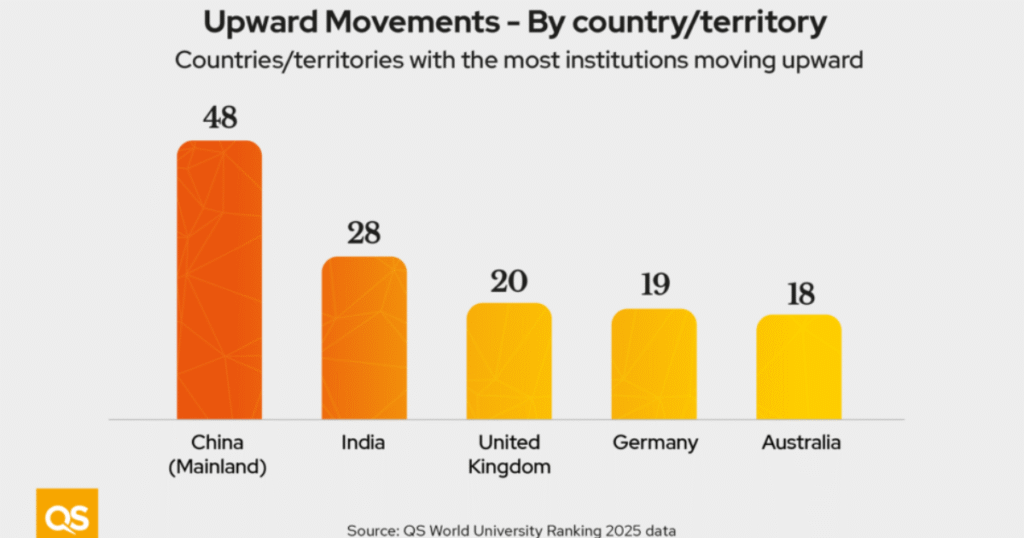In 2025, UK universities continue to be at the forefront of global higher education. However, their positions vary across different ranking systems, notably the Times Higher Education (THE) World University Rankings and the QS World University Rankings. Understanding these differences is crucial for prospective students and academic professionals.
Times Higher Education (THE) World University Rankings 2025
The THE rankings emphasize research quality, teaching environment, international outlook, and industry income. In the 2025 edition, the University of Oxford retains its top position in the UK, ranking 1st nationally and 3rd globally. Imperial College London follows closely, ranked 2nd in the UK and 9th globally. Other notable UK institutions include University College London (UCL) at 3rd nationally and 22nd globally, and the University of Cambridge at 4th nationally and 5th globally.(timeshighereducation.com)
The THE rankings highlight Oxford’s consistent performance, underscoring its strong research output and teaching quality. Imperial’s rise reflects its growing emphasis on innovation and industry collaboration. UCL and Cambridge maintain their positions due to their robust research environments and international engagement.
QS World University Rankings 2025
QS rankings focus on academic reputation, employer reputation, faculty-student ratio, international diversity, and citations per faculty. In 2025, Imperial College London leads UK institutions, ranking 2nd globally, an impressive leap from its previous position. Oxford follows closely at 3rd globally, with Cambridge at 5th. UCL is ranked 9th globally, reflecting its strong academic and employer reputation.(timeshighereducation.com)
The QS rankings highlight Imperial’s significant improvement, attributed to its enhanced performance in sustainability and research metrics. Oxford and Cambridge’s positions underscore their enduring global academic influence. UCL’s ranking emphasizes its diverse academic offerings and global collaborations.(qs.com)

Key Differences Between THE and QS Rankings
- Methodology: THE places greater emphasis on research quality and industry income, while QS focuses more on academic and employer reputations, along with international diversity.(en.wikipedia.org)
- Indicators: THE includes metrics like research environment and teaching quality, whereas QS considers factors such as faculty-student ratio and citations per faculty.
- Outcomes: These differing methodologies lead to variations in rankings. For instance, while Oxford is ranked 1st in the UK by THE, QS places it 3rd.(tribune.com.pk)
Conclusion
Both THE and QS rankings offer valuable insights into the strengths of UK universities. Prospective students should consider these rankings alongside other factors such as specific program offerings, campus facilities, and personal preferences. Ultimately, the choice between institutions should align with individual academic and professional goals.

